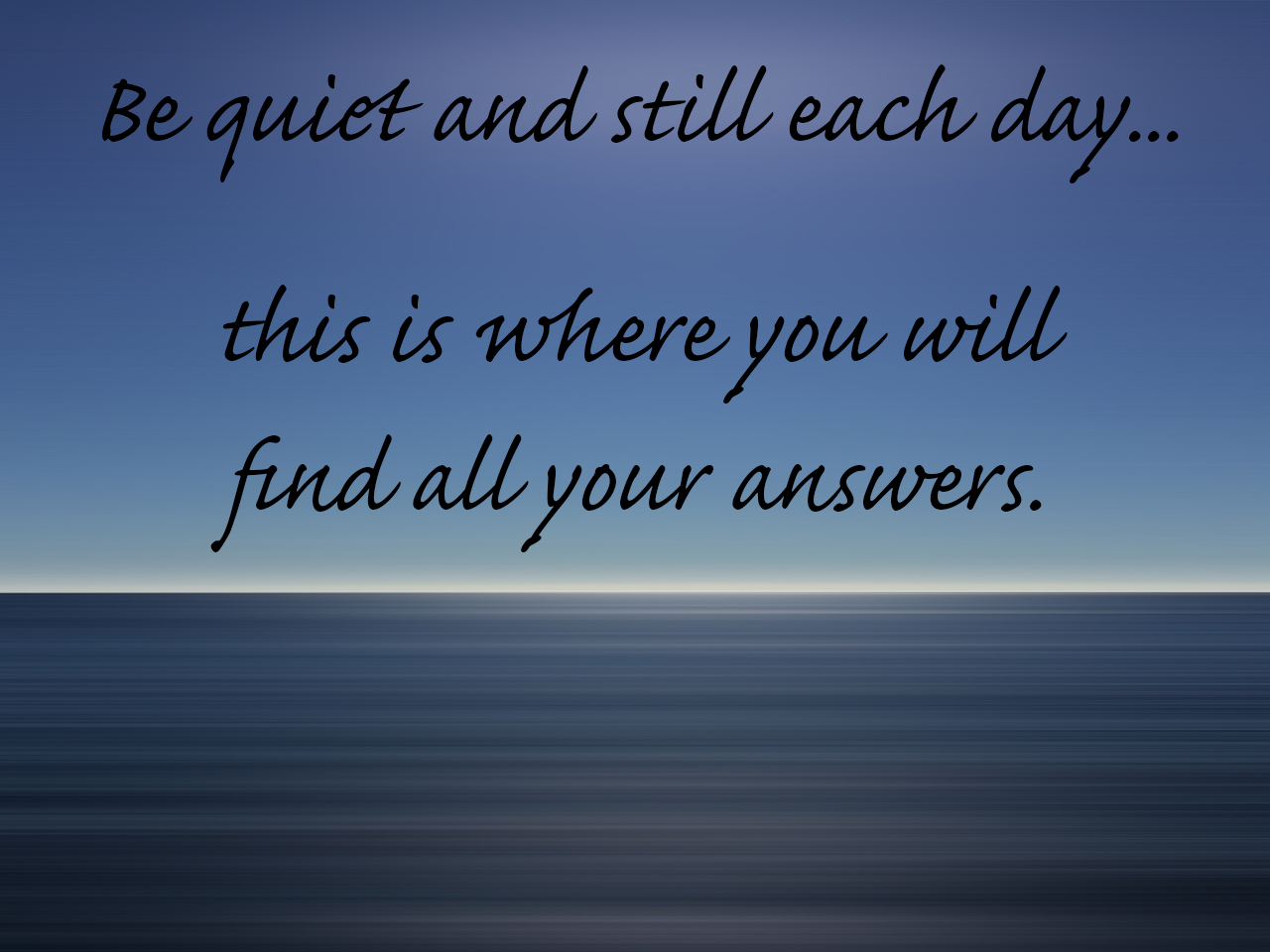The Relaxation Response: A Mind at Rest
The relaxation response may help people to counteract the toxic effects of chronic stress by slowing breathing rate, relaxing muscles, and reducing blood pressure. Pioneered by Dr. Herbert Benson, this simple recipe for eliciting relaxation can really do a lot of good in preventing full-on stress!
EVERYDAY MEDITATION
Eliciting the relaxation response is simple, Dr Benson explains: Once or twice a day for 10 to 20 minutes, sit in a relaxed position, eyes closed, and repeat a word or sound as you breathe. Some people use such words as "love" or "peace." Others say traditional prayers. If your thoughts stray -- which is normal and expected -- just refocus on the word repetition.
There are scores of other ways to summon the relaxation response, as well. "Anything that breaks the train of everyday thought will evoke this physiological state."
That includes participating in repetitive sports such as running, letting go of tension through progressive muscular relaxation, practicing yoga, knitting, crocheting, even playing musical instruments.
"You know how when you play an instrument and you become 'one' with that instrument and the time flits away? That is the relaxation response." "You know the high you get from running? That is the relaxation response coming about by the repetitive motion of your footfall." ~ parts adapted via APA.org
RECIPE
1. Sit quietly in a comfortable position.
2. Close your eyes.
3.
Deeply relax all your muscles, beginning at your feet and progressing up to your face.
Keep them relaxed.
4.
Breathe through your nose.
Become aware of your breathing.
As you breathe out, say the word, "one", silently to yourself. For example, breathe in ... out, "one",-
in .. out, "one", etc.
Breathe easily and naturally.
5.
Continue for 10 to 20 minutes.
You may open your eyes to check the time, but do not use an alarm.
When you finish, sit quietly for several minutes, at first with your eyes closed and later with your eyes opened.
Do not stand up for a few minutes.
6.
Do not worry about whether you are successful in achieving a deep level of relaxation.
Maintain a passive attitude and permit relaxation to occur at its own pace.
When distracting thoughts occur, try to ignore them by not dwelling upon them and return to repeating "one."
With practice, the response should come with little effort. Practice the technique once or twice daily, but not within two hours after any meal, since the digestive processes seem to interfere with the elicitation of the Relaxation Response. ~ parts adapted via RelaxationResponse.org
A MIND AT REST
Thinking is hard work. If you've ever been stuck on a big problem or had to work through taxing meeting after meeting where you had to be at the top of your game, you know what I'm talking about. Heck, just think back on how exhausted you were after final exams at school. Thinking is hard work.
While there's a lot you can accomplish with effort when it comes to thinking, sometimes taking a break and getting some rest is your best bet. This is particularly true when you're feeling stuck. Our mind is an interesting creation. It works on two different levels, the conscious and the subconscious.
Much of our day to day thinking is on the conscious level. You decide what you want for breakfast, and you think about watching a movie before going to bed. You think at work, at home, and everywhere in between. These are the thoughts you're aware of.
Then there are subconscious thoughts. Think of them as background processes that go on while you're thinking and working on other stuff. You're not aware of them, and frankly, the only time they make it into your conscious is when ideas pop up.
I'm sure this has happened to you before. You're busy cooking dinner and the perfect way to phrase an offer to a new client pops into your head. Or how about this? You're about to drift off to sleep, and the perfect solution for your living room organization problem pops into your head. These are subconscious thoughts making it to the surface.
This is why giving your mind some rest by going out for a walk, getting some extra sleep, or putting around the house or yard can be some time well spent. When you're feeling stuck, stop thinking about the perfect answer or solution. Go do something else, ideally something that doesn't involve a lot of hard thinking. This frees up space for your subconscious to go to work. And it will surprise you with the creative and out-of-the-box ideas it can come up with. All you have to do is give it space to work, and then listen when the solution presents itself.
Ready to give it a try? Slow down ... Breathe.
The Relaxation Response:
BONUS
Here's a feel-good way to elicit the relaxation response!
Try my FREE PROGRESSIVE MUSCLE RELAXATION SESSION:)
Ready to commit to your relaxation and well-being? Relaxation is a breeze with a little help from HYPNOSIS DOWNLOADS!

